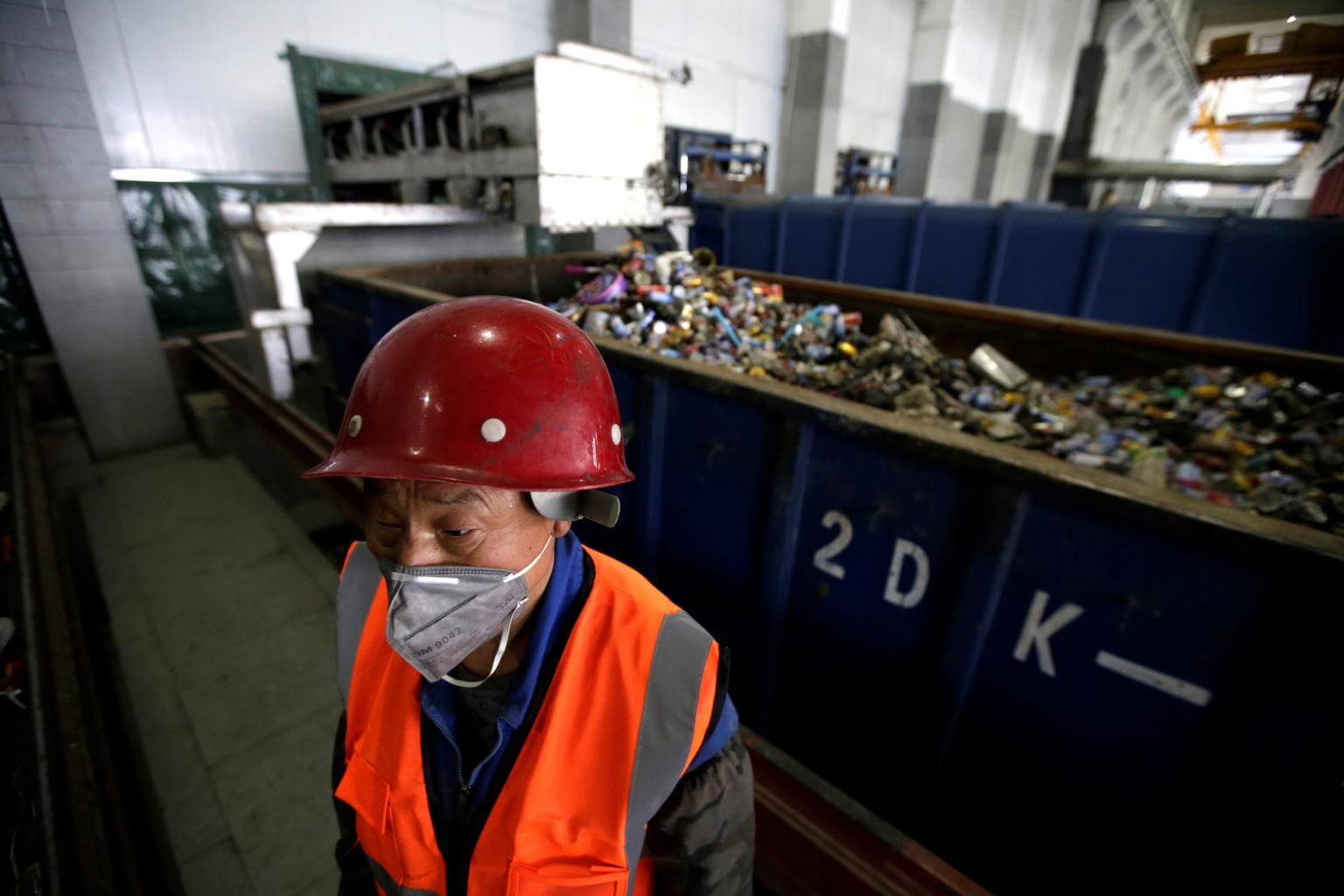Beijing struggles to get residents to sort their trash
Sign up now: Get ST's newsletters delivered to your inbox

A worker stands next to kitchen waste at a garbage transfer station in Beijing, China.
PHOTO: REUTERS
Follow topic:
BEIJING (REUTERS) - China's garbage-strewn capital of Beijing has promised to boost spending to banish growing mountains of waste, but is struggling to persuade its upwardly-mobile residents to sort their trash.
Beijing is China's biggest municipal producer of trash, having collected 8.7 million tonnes of household waste last year, almost double that of a decade earlier, and residents deride its sprawling landfills as a "seventh ring road".
The capital, with a population of 22 million, has vowed to recycle all household waste by the end of 2020, with officials saying it would increase its annual budget of 2 billion yuan (S$406.5 million) to improve disposal and home sorting.
Despite building an army of 20,000 "Green Armband" workers since 2010 to teach the art of sorting garbage, Beijing finds it tough to raise participation.
"There are only classification targets...but no punitive measures for residents who disobey the instructions," said Yang Kun, a city management official in the upmarket Finance Street district.
"We can only persuade them and introduce incentives."
The central government promised this month to make garbage sorting compulsory in 46 cities by the end of 2020, including Beijing, but the capital could need another 50,000 "Green Armband" workers to meet targets.
China's 246 large- and medium-sized cities produced 1.9 billion tonnes of solid waste in 2015, spurring government plans to cut landfill and step up recycling and incineration.
No incentives
China aims to invest nearly 200 billion yuan to reach a target of recycling 35 per cent of household garbage by the end of 2020.
Beijing, where incineration rates have quadrupled to 42 per cent in just a decade, aims to boost to 10 its current complement of four plants by 2018.
The city traditionally relied on people who collect paper, bottles and electric devices for sale to processing plants. Half its trash was handled by 170,000 such scavengers in 2013, state media reported.
But rising living standards have eroded incentives. In a pollution crackdown, Beijing tore down 82 processing facilities and shut 1,000 illegal landfills.
Garbage disposal costs have risen about 1.1 billion yuan annually as scavengers turn elsewhere, the People's Daily said recently.
"All the efforts we make and the funds we invest are to fill the gap of garbage classification, as it takes time for residents to get used to sorting trash," said Jiang Yanyan, deputy manager of the Beijing Solid Waste Treatment Company.
The public remain sceptical, said Tan Yunguang, manager at kitchen waste collector Beijing Yuyuanda Cleaning Service.
"Lots of residents have the impression the garbage is mixed up again during transport," he said. "We have to show them garbage sorting is coherent."

